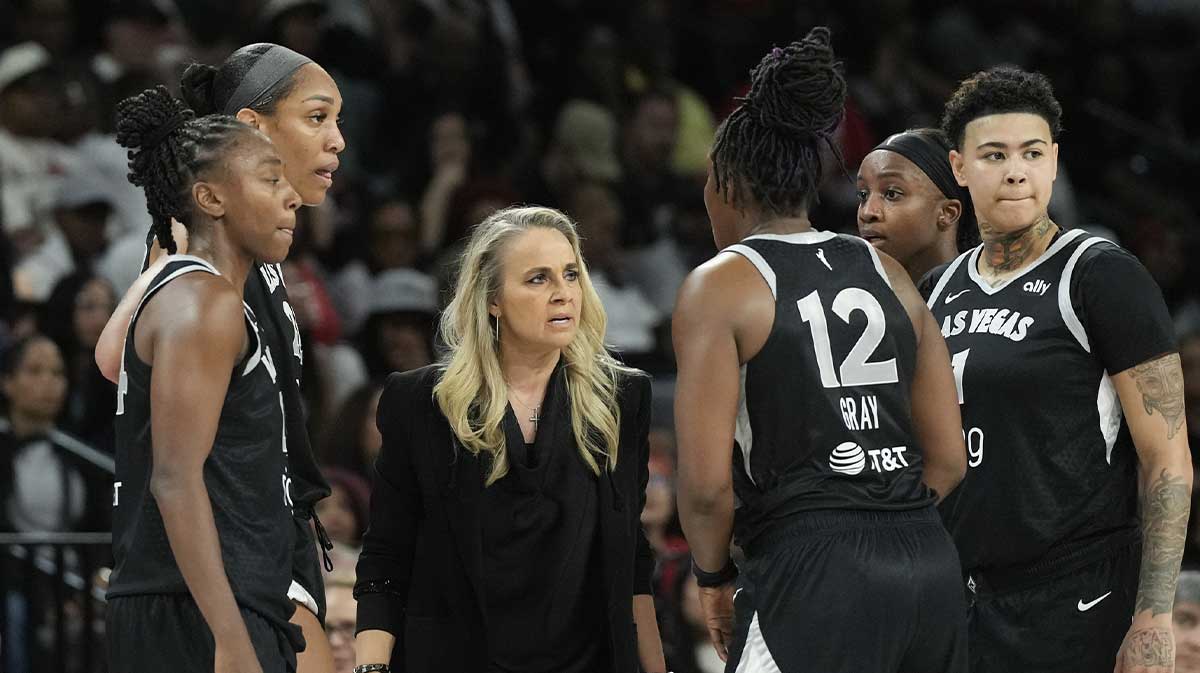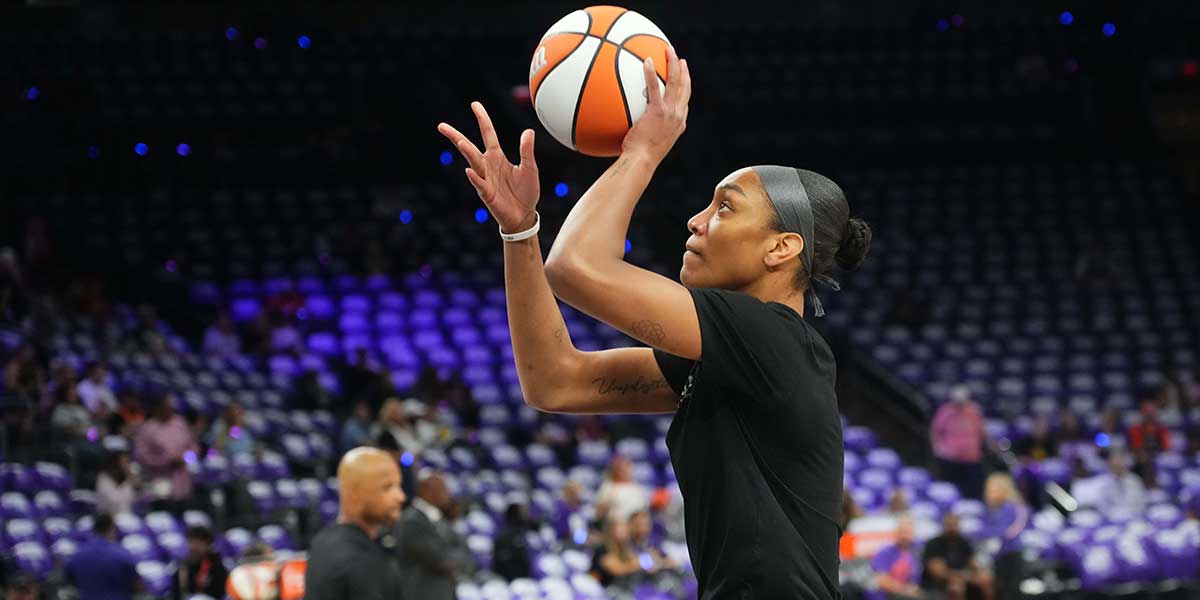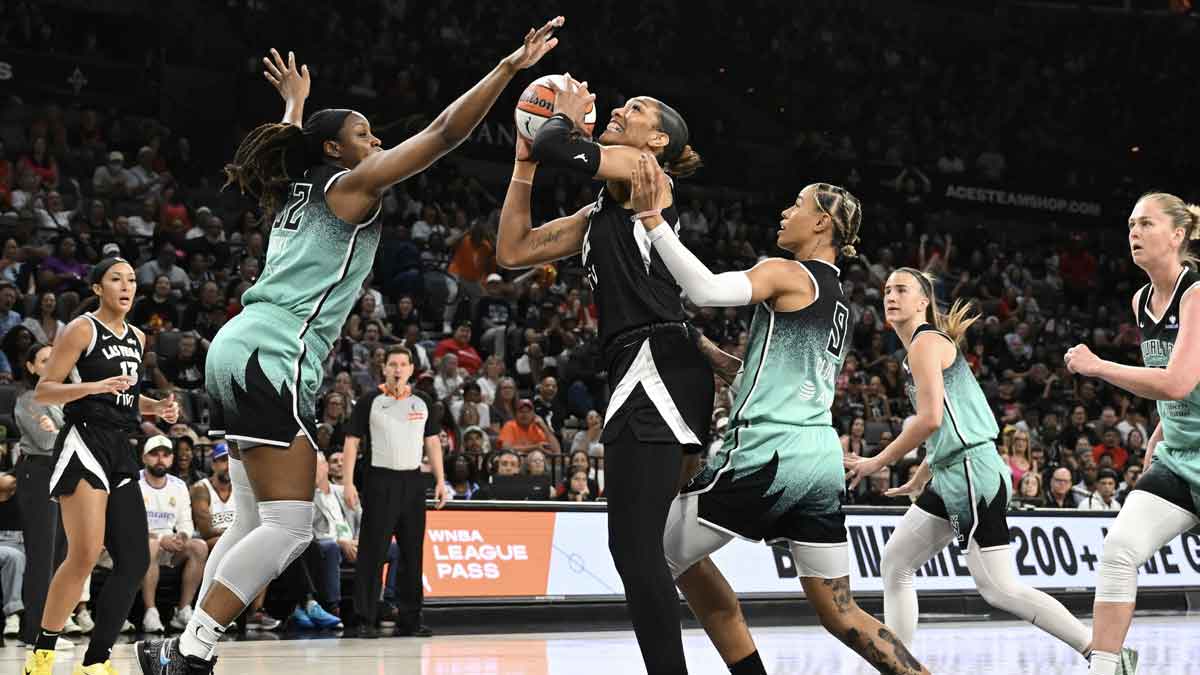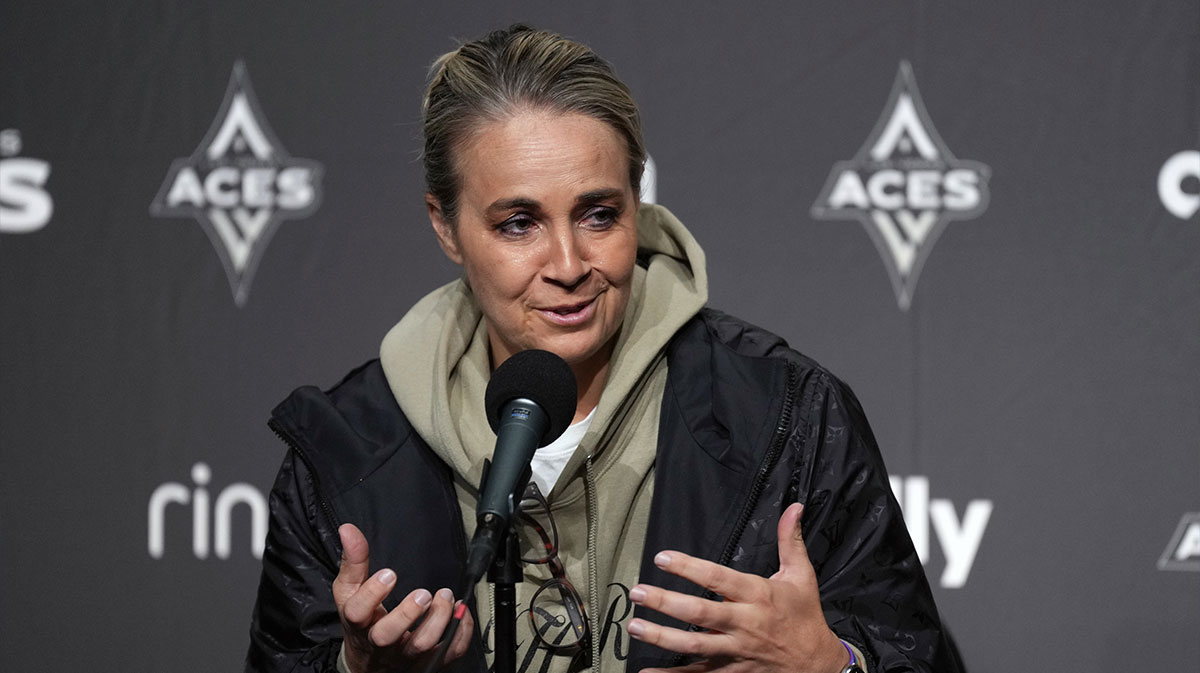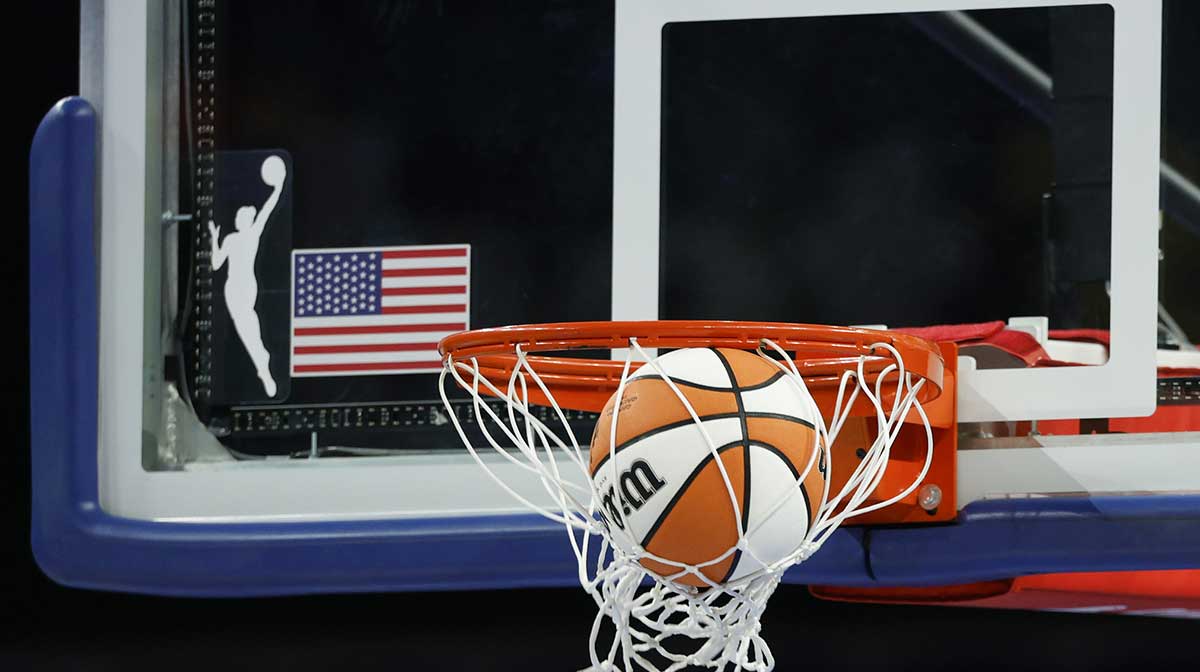The 2025 WNBA Finals feature a high-stakes clash between the reigning champions, the Las Vegas Aces, and a resurgent Phoenix Mercury squad that has clawed its way back to championship relevance. On paper, Las Vegas appears to be the superior team, boasting a formidable starting five led by MVP A’ja Wilson, All-Star Jackie Young, and savvy veterans like Chelsea Gray.
However, the playoffs are not won on paper, and even the most dominant regular-season team can be exposed if the Aces fail to adapt to the pressures, adjustments, and unpredictability of a tightly contested series. To secure a third franchise championship and solidify themselves as one of the WNBA’s all-time great dynasties, the Aces must avoid a series of critical flaws.
These are not simply tactical shortcomings but vulnerabilities that Phoenix is fully capable of exploiting. From overreliance on stars to rebounding woes and mental lapses, the Aces must remain vigilant. If not properly addressed, these significant areas could derail their title hopes.
1. Overreliance on star power
The Aces’ offensive identity revolves around their stars. Wilson and Young have carried much of the scoring and playmaking load all season. While this has proven effective against most teams, it becomes a dangerous dependency in a Finals setting, especially against a battle-tested team like Phoenix.
The Mercury are known for their elite perimeter defense and tactical game planning. If either Wilson or Young is slowed down by foul trouble, injury, or double-teams, the rest of the roster must be ready to respond.
The danger lies in becoming too predictable. If the Aces continue to initiate nearly every set through their stars without meaningful contributions from secondary players like Jewell Loyd, NaLyssa Smith, or players off the bench, Phoenix will clamp down defensively. When offensive sets stall and devolve into isolation plays or forced shots late in the shot clock, the rhythm of the Aces’ offense suffers.
Flexibility must replace rigidity, and success will depend on spreading the floor, utilizing ball movement, and leveraging the depth of their playbook.
2. Depth limitations
One of the most talked-about issues throughout the 2025 season for the Aces has been their inconsistent bench production. In multiple games, Las Vegas has struggled to maintain pace or defensive intensity when the starters are resting. This flaw becomes even more pronounced in a Finals series, where every minute matters, and the physical toll of consecutive games can wear down even the most elite players.
If the Mercury force longer possessions, increased physicality, or push the tempo when bench players are in, the Aces’ lack of dependable second-unit scoring could become a major liability. A compressed rotation not only increases injury risk but leaves little margin for error when star players are fatigued or underperforming.
To counter this, Hammon and her staff must employ smart rotation strategies. This includes pairing bench players with starters to maintain balance, giving specialized roles to reserves, and potentially calling upon underutilized players who might bring energy or matchup advantages in spurts.
3. Defensive inconsistency and lack of sustained team discipline
While the Aces are known for their scoring power, their defense has occasionally lacked cohesion. Las Vegas can deliver highlight-reel blocks and steals, but too often, it suffers from defensive lapses in communication, rotations, and off-ball awareness. These inconsistencies are a dangerous proposition against a Phoenix team led by Alyssa Thomas, a player whose court vision and passing ability can dissect undisciplined defenses.
Phoenix runs a variety of off-ball screens, backdoor cuts, and high pick-and-rolls designed to confuse defenders and create mismatches. If Las Vegas is not locked in defensively on every possession, they will find themselves chasing shooters or giving up easy layups at the rim. Even worse, overhelping or gambling for steals can open up passing lanes that Thomas is more than capable of exploiting.
Sustained communication, rotational clarity, and a unified defensive scheme will be key. Whether switching, hedging, or staying home, the Aces must be on the same page every minute of every game.
4. Rebounding and control of the paint
Rebounding has been a persistent Achilles' heel for the Aces. In their semifinal series against Indiana, Las Vegas was out-rebounded by nearly 20 in a critical Game 3. Phoenix is a physical team that thrives on effort plays, offensive rebounds, loose balls, and hustle in the paint. Allowing them second-chance opportunities could be catastrophic in a Finals where margins are razor-thin.
Wilson will need help on the boards. This means everyone from guards to forwards must be active in boxing out and crashing the glass. Transitioning from offense to defense cannot be treated passively. Every missed box-out is a potential backbreaker. Additionally, the Aces must defend the rim with both presence and discipline, deterring Phoenix from getting easy looks in the restricted area.
5. Turnovers and sloppy execution
In a matchup where possessions are at a premium, Las Vegas cannot afford to be careless with the basketball. During the regular season, their worst offensive games often coincided with high turnover counts. Phoenix will pressure the ball, jump passing lanes, and attempt to speed the Aces up. In doing so, they are banking on Las Vegas to make mental errors, which is something the Aces have done on occasion when faced with persistent defensive pressure.
Whether it’s telegraphed entry passes, miscommunications during fast breaks, or lazy closeouts on the defensive end, every slip will be punished. Turnovers fuel Phoenix’s transition game, and momentum swings off unforced errors are especially costly in a series with championship stakes.
Clean execution, deliberate tempo, and smart shot selection will mitigate these risks. When pressured, the Aces must stay composed, utilize the full shot clock, and play with intentionality, not desperation.
6. Foul trouble
The Mercury are not just skilled — they are tough. They play a brand of basketball that is physical, assertive, and sometimes confrontational. This will test the Aces’ discipline, especially when emotions run high. Foul trouble to a key player like Wilson or Young not only limits individual production but forces the team to reshuffle rotations mid-game.
Las Vegas must strike a balance between matching Phoenix's physicality and avoiding costly fouls. This means smart contests at the rim, disciplined closeouts, and avoiding unnecessary reach-ins.
But it also involves emotional control. Phoenix will likely try to bait Las Vegas players into frustration fouls or retaliatory acts, so the Aces must remain locked into the bigger picture.
7. Slow starts and momentum swings
Another pattern that could spell doom for the Aces is falling behind early. In previous playoff games, they’ve occasionally come out flat, requiring a second-half push to close the gap. That is a dangerous gamble in a Finals series where the opponent is both capable and motivated.
Slow starts feed Phoenix’s confidence and allow them to dictate the pace. When the Mercury are comfortable, they execute their system more freely and play with contagious energy. Conversely, when pushed early, they become less efficient and more prone to rushed decisions.
Las Vegas must start each game with focus, aggression, and urgency. Establishing a lead early changes the psychology of the contest and allows the Aces to play more relaxed and methodically.
8. Fatigue and the physical toll of a seven-game series
The 2025 Finals mark the first time the WNBA will feature a best-of-seven format. This evolution mirrors the NBA’s standard but presents a new challenge: endurance. Over the course of what could be a two-week battle, injuries, conditioning, and depth will take center stage.
The Aces are top-heavy, and if games go long or multiple contests head to overtime, fatigue could creep in. Fatigue does not just show up in the legs; it shows up in missed shots, lazy passes, and lapses in concentration. Managing physical stress, especially during travel days and off-days, will be critical.
Effective load management, even within games, and trust in bench players to hold their own in key stretches may determine whether Las Vegas can survive the grind of the series.
9. Predictability and lack of adjustments
In the playoffs, success often belongs to the team that can evolve. While the Aces have a defined identity, this can become a weakness if it limits their flexibility. Phoenix’s coaching staff will study tendencies and look for exploitable patterns. If Las Vegas fails to adapt to defensive changes or continues to run ineffective sets, the Mercury will seize control.
Game-to-game, and sometimes within a game, adjustments must be made. If a player is struggling, they must be subbed out. If a defensive scheme is not working, it must be tweaked. Finals are not the time for stubbornness; they are the ultimate test of adaptability.
Coaching decisions — when to challenge a call, when to go small or big, how to disrupt a run — will carry added weight.
10. Complacency and underestimating Phoenix’s grit
Perhaps the most dangerous flaw of all is underestimating Phoenix. The Mercury may lack the glitz of Las Vegas, but they possess something just as powerful: grit, resilience, and the scars of past battles. This is a team that overcame injury adversity, road wins, and media skepticism to reach the Finals.
If the Aces come into this series expecting Phoenix to fold under pressure, they are inviting disaster. Complacency leads to flat performances, missed details, and a lack of urgency in moments that demand sharpness. Mental focus, emotional maturity, and respect for the opponent are non-negotiable if Las Vegas wants to cement its legacy.
The 2025 WNBA Finals will test not just the talent of the Aces but their discipline, adaptability, and mental toughness. While they are the favorites on paper, championships are earned, not assumed. To defeat the Mercury, the Aces must avoid falling into predictable traps, including overreliance on stars, fatigue, poor rebounding, and lapses in focus.
This is a series that demands poise under pressure and execution at the highest level. If the Aces can remain balanced, rotate wisely, rebound ferociously, defend intelligently, and adjust quickly, they will be well on their way to hoisting another WNBA trophy. If not, Phoenix will be ready to capitalize.
The margin between greatness and disappointment is thin, and Las Vegas must play like a team that understands that every possession, every adjustment, and every decision matters.

